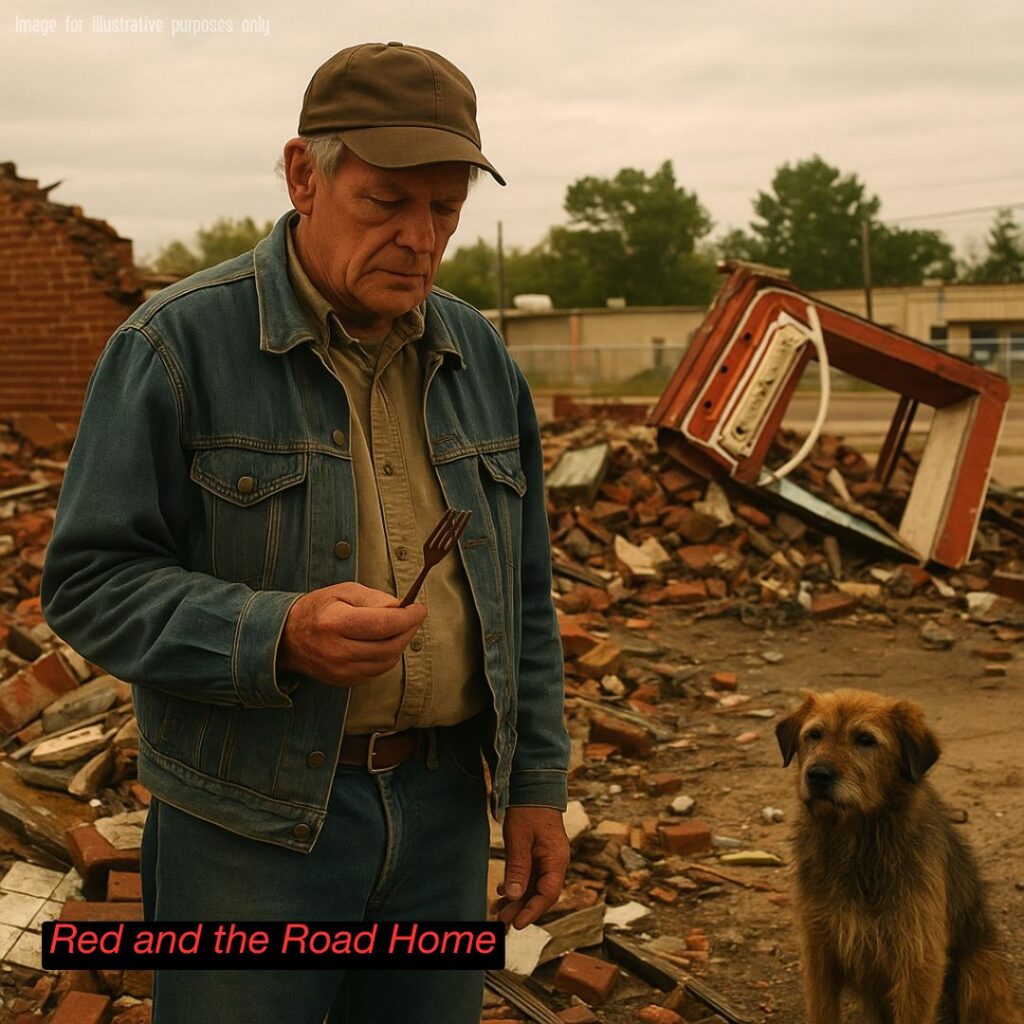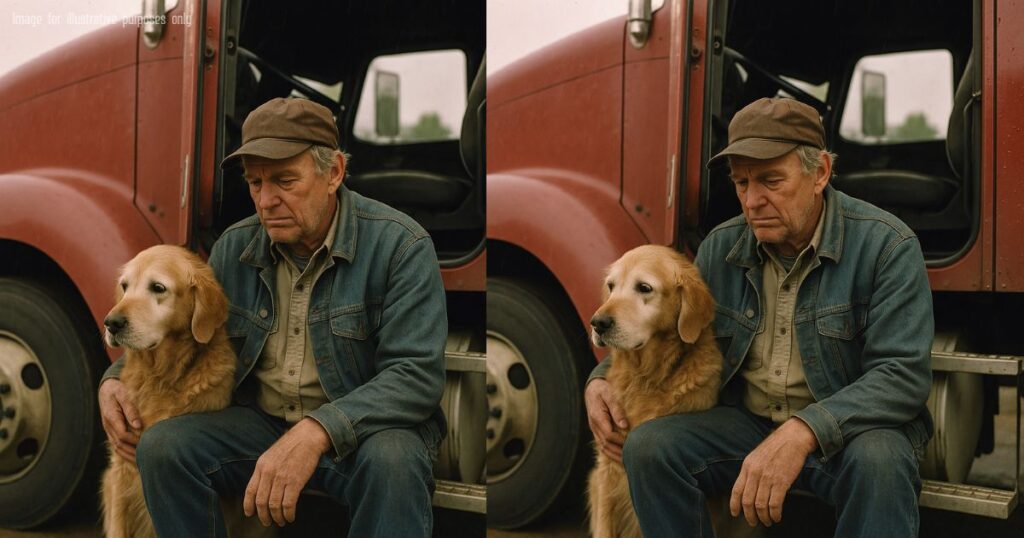Part 5 – The Last Diner in Town

They tore down the diner last week — the one where Mary first kissed me across a Formica table while Patsy Cline played on the jukebox.
I heard about it from Earl down at the post office.
“They bulldozed Ruby’s,” he said, handing me a catalog neither of us had asked for.
I just stood there holding it, staring at the pavement like it might give me something to hold onto.
“It was time,” Earl said. “Place hadn’t served a real meal since COVID.”
But it had served something. Something more important than eggs and pie.
It served us.
Ruby’s Diner sat at the edge of town, right before the grain elevator and across from where the old video store used to be. It was nothing special to look at — chipped blue siding, faded awning, the “R” in the neon sign flickering on and off like a dying firefly.
But to me?
It was the beating heart of Mill Hollow.
I remember the first time I saw her — Mary, I mean — sitting in that booth by the window, wearing a yellow raincoat and reading the newspaper like it owed her money.
I was twenty-two. Fresh back from a welding job in Tulsa. Mud still on my boots. Pride still bigger than my paycheck.
I sat across from her without asking.
She didn’t look up.
“You’re in my light,” she said.
“You’re in my diner,” I shot back.
She finally looked up, and I swear to this day I saw every season in her eyes.
“You buying me coffee or just blocking my view?”
We were married fourteen months later.
Ruby’s became our place.
Celebration dinners. Silent treatments. Friday breakfasts when we could afford it. Tuesday lunches when we couldn’t but went anyway.
She’d always order grilled cheese and a Coke, even when the prices went up and the portions went down.
Said it reminded her of simpler times.
After the funeral, I went back once.
The place was quiet. The booths thinner, the counter staff younger. The jukebox unplugged. But the same greasy smell still hung in the air — bacon and burnt toast and memories.
I sat at our booth. Ordered two coffees.
Didn’t drink either.
Just watched the rain hit the window like it used to.
The waitress brought the check and said, “You sure you don’t want a slice of pie?”
I wanted to say yes.
I wanted to say “Make it cherry. Mary always liked cherry.”
But instead I just said, “No, thanks,” and left a twenty under the cup.
Never went back.
So when Earl told me they tore it down, I didn’t say much.
Just nodded.
But that night, I sat in the truck with Diesel, the radio barely whispering, and I cried like the roof had caved in.
Not loud. Not messy.
The kind of crying a man does when he’s too old to punch walls but too young to forget.
Next morning, I put Diesel in the passenger seat, same as always, and we drove.
Not far. Just to where Ruby’s used to stand.
They hadn’t even cleaned up.
Just piles of brick and insulation. Some twisted chrome from the counter. A cracked “Pie All Day” sign leaning against a busted cinderblock.
I parked across the street and just stared.
Diesel rested his chin on the dash.
We both watched.
Then I did something I hadn’t done in decades.
I got out.
Walked across the road, boots crunching on gravel and old time.
Picked through the rubble.
No one stopped me. No one cared. The town’s too tired to chase ghosts.
And that’s what I found — a ghost.
Not Mary.
Not really.
But something close.
A fork.
Bent, dull, rusted at the tip.
I knew that fork. I knew it.
Mary used to use it to tap the side of her glass when I got too lost in the sports section or my second cup of coffee.
Tap tap tap.
“Earth to Red.”
And I’d always look up, smile, and say, “Still here.”
I held that fork like it meant something.
Because it did.
It meant something had mattered here.
That this ground — this stupid, weed-choked lot — had once held laughter. And coffee refills. And elbows brushing across chipped plates. And knees touching under Formica tables. And Sunday morning hand-holding over scrambled eggs.
I didn’t steal it.
I took it back.
Back home, I cleaned it up with vinegar and steel wool. Took an hour, but it shined again. Not like new. Like remembered.
Hung it on the kitchen wall, next to the note Mary left in my boot.
I sat down, Diesel at my feet, and poured two cups of coffee.
One for me.
One for what was.
The next morning, I mailed Earl a letter.
Just said:
“If they put up a gas station, I’ll chain myself to the pump.”
He wrote back:
“Too late. It’s gonna be a vape shop.”
I laughed so hard I nearly dropped my mug.
Laughed and cried.
Like life wanted me to do both at once.
ENDING:
The places we lose aren’t just buildings.
They’re bookmarks.
And sometimes, you don’t know you’ve lost a chapter
until the page is gone.


